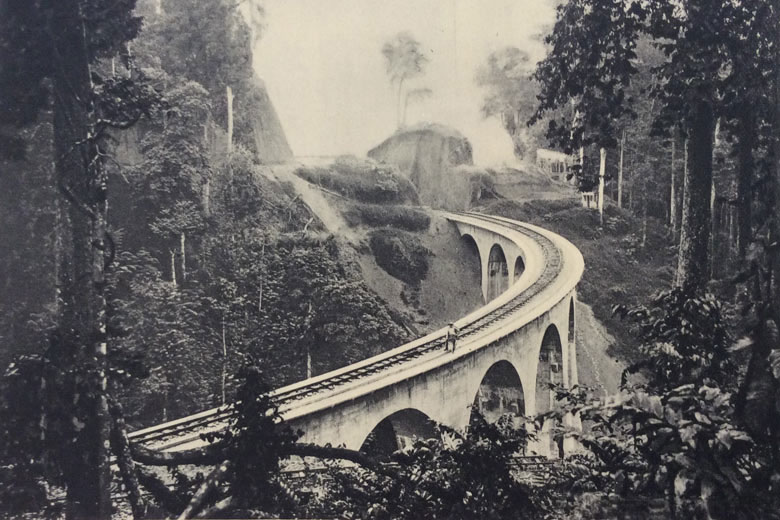Books and Arts
文学与艺术
Book Review
书评
The Congo-Ocean Railway - Blood on the tracks
刚果-海洋铁路——沾满血迹的铁轨
In the Forest of No Joy. By J.P. Daughton.
《失乐丛林》,作者J.P.道顿。
The statue of King Leopold II of Belgium that stands in sight of the royal palace in Brussels has been defaced dozens of times in recent years. Activists have painted its hands and eyes red as a reminder of the brutality that Leopold unleashed in the Congo Free State, a territory in central Africa, at the end of the 19th century. As many as 10m Congolese — or half of the population — might have perished as Europeans forced entire villages to collect rubber and ivory for export.
比利时国王利奥波德二世的雕像矗立在布鲁塞尔皇宫附近,近年来已经被涂污了几十次。激进分子将它的手和眼睛涂成红色,来提醒人们19世纪末利奥波德在非洲中部的刚果自由邦犯下的暴行。由于欧洲人强迫整个村庄收集橡胶和象牙用于出口,可能曾导致多达1000万刚果人(占刚果人口的一半)死亡。

Leopold’s exploitation of Congo was a scandal. In 1908, after years of campaigning by journalists, the Belgian state stripped the king of his private possession. The Belgian Congo joined other European colonies in Africa where wanton extraction was to be replaced by a supposedly civilising mission. Yet though less transparently murderous, the “benign” colonialism of elsewhere was often not that different from what happened under Leopold. A new book, “In the Forest of No Joy”, by J.P. Daughton, an American historian, exposes how forced labour in the French Congo (now the Republic of Congo), on the other side of the river from Leopold’s possession (now the Democratic Republic), led to the deaths of tens of thousands of Africans.
利奥波德对刚果的剥削是一桩丑闻。1908年,经过记者多年的抗争,比利时政府剥夺了国王的私人财产。比属刚果加入了其它欧洲在非洲的殖民地,在那里,肆意剥削被冠上所谓文明使命的名号。然而,尽管表面上没有显得太凶残,但其他地方的“温和”殖民主义通常与利奥波德统治时期的情况没有太大不同。美国历史学家J.P. 道顿的新书《失乐丛林》揭露了利奥波德领地(现在的刚果民主共和国)河对岸的法属刚果(现刚果共和国),是如何通过强迫劳动致使数万非洲人死亡的。
The book is a masterful, if relentlessly bleak, account of the construction of the Congo-Ocean Railway, a route designed to connect the central African interior to the Atlantic. What makes it so compelling is the divide it exposes between the often admirable intentions of colonial bureaucrats, who did genuinely think they were lifting Africans out of poverty, and the grim reality that they enabled. The application of “modern” government to conquered people could be almost as savage as plunder, Mr Daughton shows.
这本书是关于刚果-海洋铁路(一条连接中非内陆和大西洋的路线)建设的大师之作,尽管描述得无情又冷酷。它之所以如此引人注目,是因为它暴露了殖民官僚大多令人钦佩的意图和他们带来的严酷现实之间的鸿沟。而殖民官僚们确实认为他们正在帮助非洲人摆脱贫困。道顿先生指出,运用“现代”政府征服人民几乎就像掠夺一样野蛮。
译文由可可原创,仅供学习交流使用,未经许可请勿转载。












